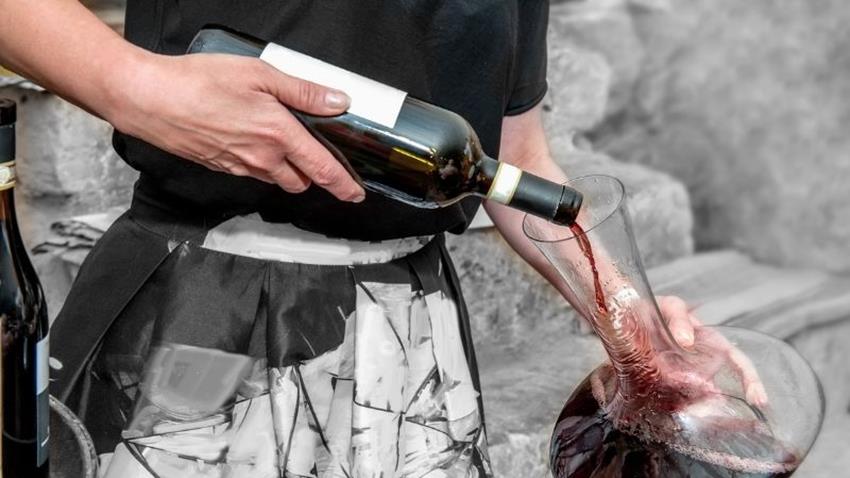
Wine has a lot of rules, and nearly everyone you ask will have a different idea of what truly matters when it comes to serving the perfect glass. And, yes, how you store and present wine can make a big difference in what you can smell and taste but it doesn’t have to be complicated.
We’ve put together a simple guide to help you decide what matters and what really doesn’t when it comes to storing your wine, dispelling a couple of common misconceptions along the way.
Should I Age My Wine?
Not all wines are made to be aged. By some estimates, 99% of wines are best when drunk young. Even if you do have one of those special wines on your hands that will develop beautifully with time, the choice of whether and for how long to age your wines comes down to preference. Do you prefer the earthy, leather-bound characters that come with 20 years in the cellar or are you into the spiciness and tension of a young Barolo that’s less than 5 years old?
For most venues, it’s not practical to have a list with many old vintage wines. Stock needs to be able to earn its keep in a busy restaurant and having bottles on hand for years poses a whole host of problems.
When you start thinking about collecting wine to age for years rather than months it’s time to look to cellaring options that allow you to control conditions easily and where you can let the bottle sit and be forgotten until the magical (or nerve-wracking) day you open it.
Keeping Cool - Best Storage Temperature
Temperature matters. Wine hates heat and even a short period of very high temperatures can encourage the wine to oxidise and lose delicate aromas. According to science the ideal range for most wines is 11-14°C but realistically if your storage space is at the low end of room temperature you’re going to be fine in the short term. So long as your wine isn’t kept at temperatures higher than 24°C or in conditions that swing from hot to cold, like a restaurant kitchen or uninsulated shed, your wine quality won’t suffer.
It's best, however, to avoid keeping wine in the household or walk-in fridge. The very dry air of a refrigerator encourages corks to shrink which lets oxygen into the wine inside a month or two. And, if the wine gets close to freezing, the expanding juice could push out the cork altogether.
Standing Up or Lying Down?
The traditional way of storing wine is lying on its side and there’s a couple of sound reasons for this. When the bottle is sideways the liquid is in contact with the cork which keeps it from drying out. Dry cork is a big worry when storing wine long-term due to the risk of oxidation. Although it isn’t what is meant by the word corked, which refers to a specific taint caused by a chemical compound, it’s a lot more common than cork taint and something to look out for. However, as with most wine storage ‘rules’, this effect won’t bother you too much if the normal lifespan of your bottles is in the months. Unless, of course, you happen to live in the middle of the desert or on the surface of Mars.
The other reason that bottles are stored lying down is that it’s very space-efficient and reduces the likelihood of breakage. But this entirely depends on the specifications of your storage space, so go ahead and stack your bottles however works best for you.
Bad Vibrations
One aspect of wine storage that probably gets more attention than it deserves is the effects of vibrations on wine’s longevity. Whether sonic vibrations cause faster oxidation or otherwise disturb the chemical reactions going on in the bottle is a hotly debated topic among wine collectors. But there doesn’t seem to be a lot of evidence to support it.
I once attended a tasting where bottles of the same wine across 60 vintages were opened and tested for soundness. One of the oldest and best examples of the wine came from a collector who, for the first 30 years or so, had kept the bottle on top of his ancient refrigerator with all the rattling and buzzing that involves. That is to say, it’s ultimately very hard to predict which wines will survive long storage and which will lose character even in perfect circumstances.
For the short term, I wouldn’t spare a thought for vibrational frequencies the wine experiences in storage. So long as you aren’t regularly shaking the bottles there’s not a lot of chance you’ll ever notice a difference.
In the Dark - Does Light Affect wine?
Unlike vibration, sunlight is known to cause damage to wine within a pretty short time frame. It’s one of the reasons most wine bottles are made from coloured glass. As a rule, it’s not a good idea to keep your wine too near a window that gets a lot of light. Think of your wine like a moderately picky houseplant, not too hot and not too sunny. Although watering is usually unnecessary.
Household light bulbs can’t do too much damage to your wine. Although if you are concerned incandescent bulbs may be safer than fluorescent bulbs, which do give off the tiniest amounts of ultraviolet light.
All in all, for wines you’re planning to drink or serve within a couple of months there’s not much you can do to destroy what’s in the bottle. Stick to a couple of key principles and you’ll almost always have a bottle that’s in great condition. Longer-term storage does pose some more challenges and could need a bit more careful thought. Maybe investing in a dedicated space for a cellar, including temperature and light control, could be worthwhile if you plan on collecting and ageing wine into the years and decades.

